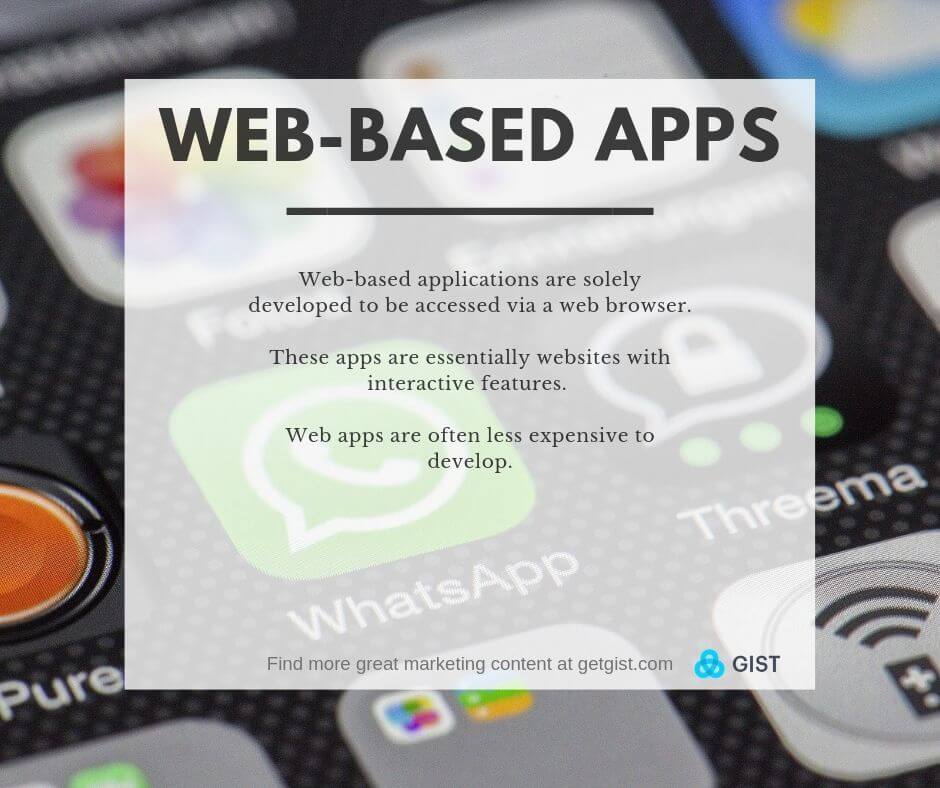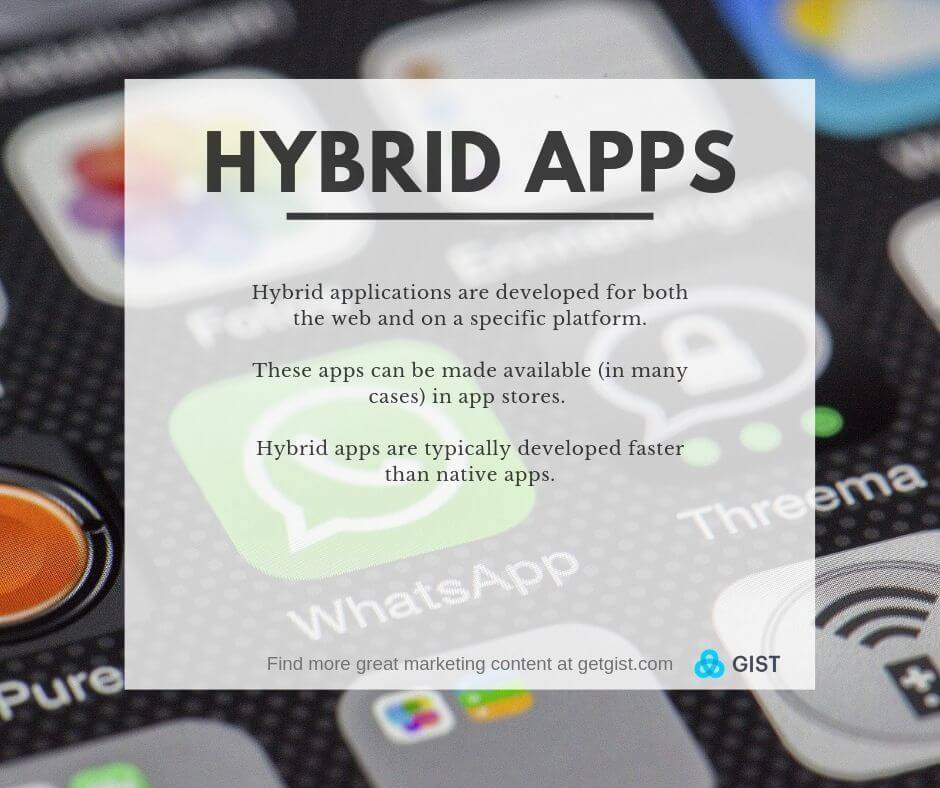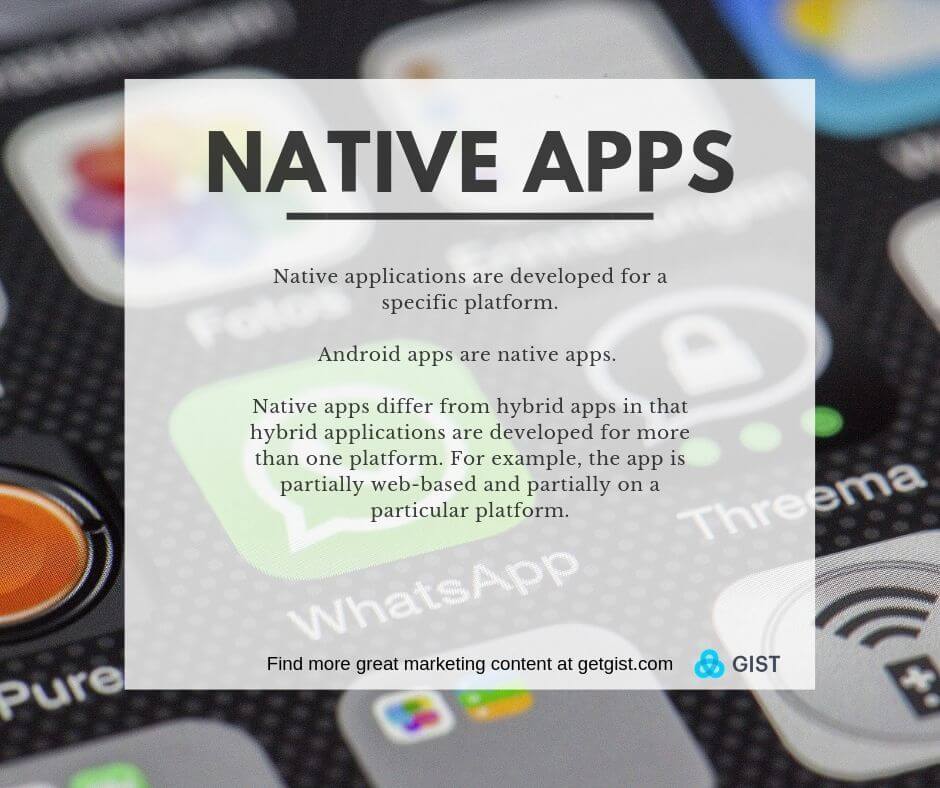There are still many misconceptions surrounding app development, especially for mobile. As we move into a mobile-first world, many companies considering mobile apps are facing a common challenge — which should we choose? Should we build a native, mobile web, or hybrid app?
The answer depends on your company’s priorities and many factors such as:
— How fast you need the app
— If you develop any part of the app in-house
— What you are trying to accomplish with the app
— Your budget for app development
— What features you need
To help you decide, let’s take a look at the differences between native, mobile web, and hybrid apps, as well as the advantages and disadvantages of each so you can understand which approach will be the right one for your app idea.
Native Apps
Native apps are what comes to most of our minds when we think of mobile apps and are downloaded from the App Store or Google Play. What distinguishes native apps from mobile web and hybrid apps is that they are developed for specific devices. For instance, Android apps are written in Java and iPhone apps are written in Objective-C.
The advantage of choosing a native app is that it is the fastest and most reliable when it comes to user experience. Native apps can also interact with all of the device’s operating system features, such as the microphone, camera, contacts lists, etc. However, a bigger budget is required if you want to build your app for multiple platforms (i.e. iPhones and Android) and to keep your native app updated.
Web Apps

Web applications are basically websites with interactivity that feels similar to a mobile app. Web apps run in multiple browsers — such as Safari or Chrome — and are written in HTML5 and/or Javascript. If your startup is on a budget and doesn’t require complex functionalities or access to operating system features, then building a web app can be the least expensive option.
The downside is that web apps can be slower, less intuitive, and inaccessible through app stores. Additionally, your users won’t have your web app’s icon automatically downloaded to their home screens, so they won’t be constantly reminded to use your app.
Hybrid Apps

A hybrid app combines elements of both native and web applications. Hybrid apps can be distributed through the app stores just like a native app, and they can incorporate operating system features. Like a web app, hybrid apps can also use cross-compatible web technologies.
Hybrid apps are typically easier and faster to develop than native apps. They also require less maintenance. On the other hand, the speed of your hybrid app will depend completely on the speed of the user’s browser. This means hybrid apps will almost never run as fast as a native app runs.
The advantage of hybrid apps is that you can build them on a single base, which allows you to add new functionalities to multiple versions of your app. With native apps, you will need to replicate every new feature you want to introduce for each platform.
So which one should your startup choose?
In order to make the right choice, it’s important to understand the differences of each option and so you’re heading in the right direction. Native, mobile web, and hybrid applications each have their own strengths and weaknesses, and your final decision will depend almost entirely on your startup’s needs.
After considering your options, it’s important to work with app developers that can bring your idea to life efficiently and cost-effectively. Outsourcing your app development is a good way to test run your project without hiring permanent in-house staff. Working with a professional outsource development team is also a good way to make your mobile app development project feel like a natural transition, rather than a giant leap into uncharted territory. At Gigvy, we can help you choose the right app for your idea and connect you to our network of top app development talent in Latin America.
